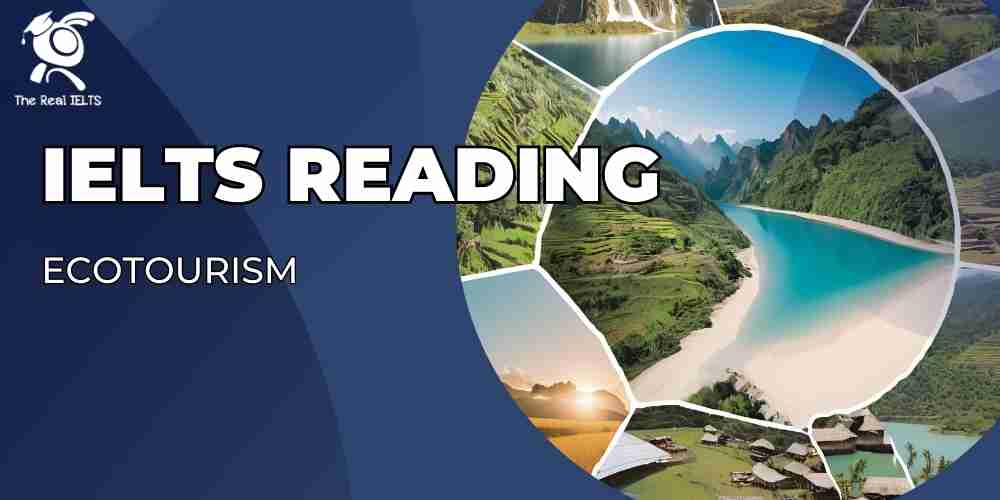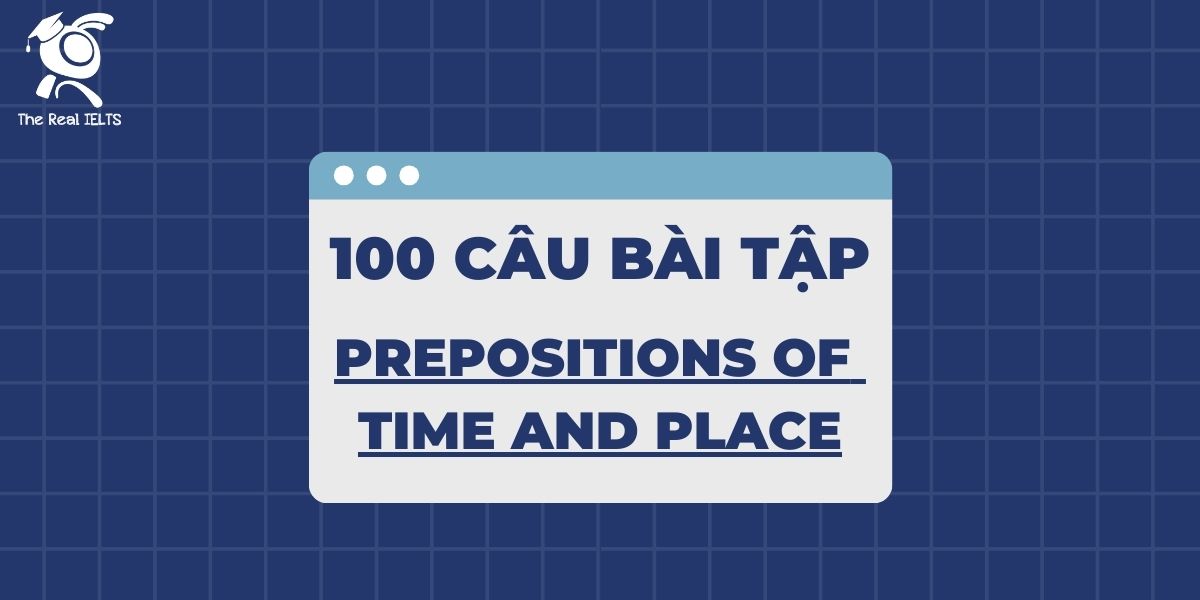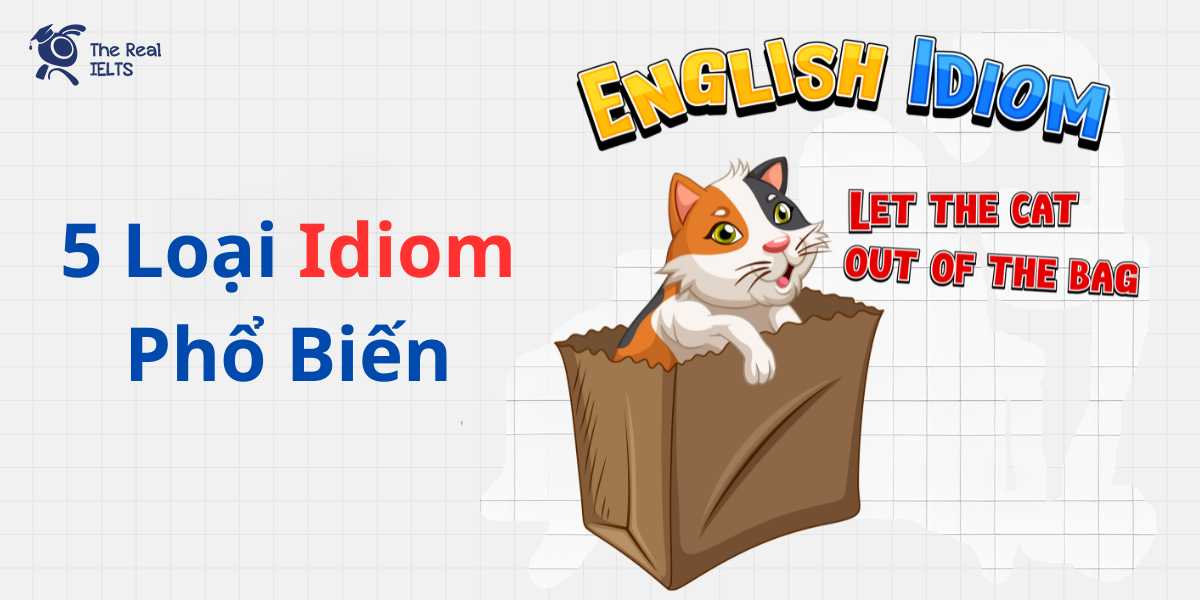IELTS Reading 73: Ecotourism là chủ đề thuộc chuỗi bài luyện tập 11 dạng bài IELTS Reading và các bài tập luyện tập.
Học lại bài cũ: IELTS Reading 72: The impact of tourism on local cultures.
IELTS Reading: Ecotourism
Ecotourism has emerged as a growing trend in the travel industry, offering a sustainable alternative to conventional tourism. Defined as responsible travel to natural areas that conserves the environment, sustains the well-being of local communities, and involves interpretation and education, ecotourism seeks to minimize the ecological footprint of tourists while maximizing their engagement with nature and local cultures. Unlike traditional forms of tourism, which often contribute to environmental degradation and cultural disruption, ecotourism promotes environmental stewardship and fosters meaningful interactions between visitors and locals. This approach allows travelers to immerse themselves in pristine ecosystems, observe wildlife in their natural habitats, and participate in conservation efforts, all while contributing to the local economy in an eco-friendly manner.
Ecotourism not only prioritizes environmental conservation but also emphasizes the empowerment of indigenous communities. Local populations are often involved in managing ecotourism projects, providing them with job opportunities, economic benefits, and a voice in sustainable development initiatives. For instance, indigenous communities in Costa Rica and Kenya have established eco-lodges and guided tours that allow travelers to explore the unique flora, fauna, and customs of these regions, all while preserving the cultural heritage and natural beauty of these areas. Additionally, revenues generated from ecotourism are frequently reinvested into local projects, such as reforestation, wildlife protection, and cultural preservation efforts, creating a self-sustaining cycle of conservation and community development.
One of the main advantages of ecotourism lies in its educational component. Unlike typical vacations focused on relaxation or leisure, ecotourism encourages travelers to learn about the ecosystems they visit, raising awareness about global environmental issues. By observing fragile ecosystems firsthand, tourists gain a deeper appreciation for biodiversity and the importance of conservation. Educational programs, often led by local guides or environmental experts, further enhance the learning experience by providing insights into sustainable practices and the challenges facing specific habitats. Through these experiences, travelers become more informed and conscientious global citizens, often returning home with a renewed commitment to environmental responsibility.
Despite its numerous benefits, ecotourism also presents challenges. In some cases, the influx of visitors to fragile environments can lead to unintended consequences, such as habitat disruption, pollution, or wildlife disturbance. Managing ecotourism sustainably requires strict regulations, effective planning, and collaboration between governments, private sectors, and local communities to protect these areas from overuse. Overcrowding and commercialization can undermine the core values of ecotourism, turning it into another form of mass tourism. To mitigate these risks, ecotourism operators often implement policies like visitor limits, controlled access to sensitive areas, and eco-friendly accommodations that minimize resource consumption and waste.
In conclusion, ecotourism represents a promising approach to sustainable travel, combining environmental preservation, community empowerment, and educational enrichment. By fostering a deep connection between travelers and the natural world, ecotourism has the potential to promote environmental stewardship on a global scale. However, to truly fulfill its mission, ecotourism must be managed carefully to prevent negative impacts on ecosystems and local communities.
Questions
1. Multiple Choice
- What is the primary focus of ecotourism?
- A. Providing luxurious travel experiences
- B. Protecting local wildlife and ecosystems
- C. Offering affordable travel options
- D. Expanding mass tourism
- Why are indigenous communities involved in ecotourism projects?
- A. To increase tourism revenue
- B. To empower them and provide job opportunities
- C. To attract wealthy tourists
- D. To protect tourists from environmental harm
2. True/False/Not Given
- Ecotourism only benefits the environment, not local communities.
- Ecotourism helps tourists appreciate the importance of conserving biodiversity.
- Overcrowding and commercialization are always beneficial for ecotourism.
3. Yes/No/Not Given
- Ecotourism is considered an eco-friendly way to support local economies.
- All ecotourism projects are managed exclusively by the government.
- Ecotourism aims to provide luxurious experiences in remote locations.
4. Matching Information
Match each purpose with the paragraph that discusses it.
- A. Empowering indigenous communities through ecotourism
- B. Raising awareness about environmental issues
- C. Preventing negative impacts of tourism on ecosystems
5. Matching Headings
Choose the correct heading for each paragraph.
- A. The Role of Education in Ecotourism
- B. Challenges of Sustainable Ecotourism
- C. Economic Benefits of Ecotourism for Local Communities
- D. Ecotourism’s Definition and Objectives
6. Matching Sentence Endings
Match the beginning of each sentence with its correct ending.
- Ecotourism allows travelers to participate in…
- The income from ecotourism is often reinvested in…
- Overcrowding can be reduced through…
- A. conservation projects and community development
- B. conservation efforts alongside local guides
- C. visitor limits and controlled access policies
7. Sentence Completion
- Ecotourism emphasizes __________ as well as environmental conservation.
- Indigenous communities can generate income by establishing __________.
- The involvement of tourists in conservation efforts leads to __________.
8. Summary Completion
Complete the summary using words from the passage.
Ecotourism is a form of travel that promotes __________ and helps protect local ecosystems. It empowers __________ by creating job opportunities and improving their __________. Ecotourism also educates tourists, fostering a deeper understanding of __________.
9. Diagram Label Completion
Label the diagram based on information from the text.
- Sustainable Tourism Model
- Conservation efforts
- Job opportunities for local communities
- Visitor __________
10. Short Answer Questions
- What is the main advantage of ecotourism’s educational component?
- How do local communities benefit economically from ecotourism?
- What are some policies used to manage visitor impact in ecotourism?
11. Table/Flowchart/Note Completion
Complete the table with information from the passage.
| Aspect | Details |
|---|---|
| Definition of Ecotourism | Responsible travel that conserves __________ |
| Community Involvement | Job creation, empowerment, and cultural __________ |
| Management Challenges | Avoiding overcrowding, implementing visitor __________ |
Đáp án
1. Multiple Choice
- B. Protecting local wildlife and ecosystems
- B. To empower them and provide job opportunities
2. True/False/Not Given
- False – The passage states that ecotourism benefits both the environment and local communities.
- True – Ecotourism helps tourists appreciate biodiversity and conservation.
- False – Overcrowding and commercialization are seen as risks, not benefits.
3. Yes/No/Not Given
- Yes – Ecotourism is described as eco-friendly and supports local economies.
- Not Given – The passage does not state that governments manage all ecotourism projects.
- No – Ecotourism is focused on sustainable, not luxurious, travel.
4. Matching Information
- A. Empowering indigenous communities through ecotourism – Paragraph 2
- B. Raising awareness about environmental issues – Paragraph 3
- C. Preventing negative impacts of tourism on ecosystems – Paragraph 4
5. Matching Headings
- A. The Role of Education in Ecotourism – Paragraph 3
- B. Challenges of Sustainable Ecotourism – Paragraph 4
- C. Economic Benefits of Ecotourism for Local Communities – Paragraph 2
- D. Ecotourism’s Definition and Objectives – Paragraph 1
6. Matching Sentence Endings
- B. conservation efforts alongside local guides
- A. conservation projects and community development
- C. visitor limits and controlled access policies
7. Sentence Completion
- community empowerment as well as environmental conservation.
- Indigenous communities can generate income by establishing eco-lodges and guided tours.
- The involvement of tourists in conservation efforts leads to greater environmental awareness.
8. Summary Completion
Ecotourism is a form of travel that promotes sustainability and helps protect local ecosystems. It empowers local communities by creating job opportunities and improving their economic well-being. Ecotourism also educates tourists, fostering a deeper understanding of environmental conservation.
9. Diagram Label Completion
- Sustainable Tourism Model
- Conservation efforts
- Job opportunities for local communities
- Visitor limits
10. Short Answer Questions
- To raise awareness about global environmental issues.
- By managing eco-lodges and offering tours, providing job opportunities.
- Visitor limits, controlled access, and eco-friendly accommodations.
11. Table/Flowchart/Note Completion
| Aspect | Details |
|---|---|
| Definition of Ecotourism | Responsible travel that conserves the environment |
| Community Involvement | Job creation, empowerment, and cultural preservation |
| Management Challenges | Avoiding overcrowding, implementing visitor limits |















